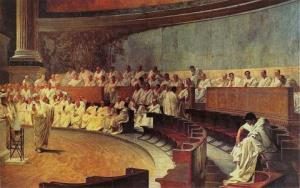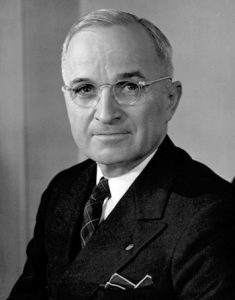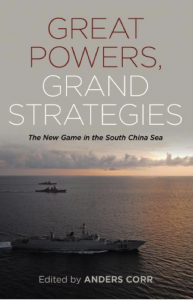 In early 1933, delegations of rank-and-file workers from all over Germany descended on the headquarters of the German Communist Party in Berlin. They were demanding that their leaders call a general strike to topple the newly appointed chancellor, Adolf Hitler. That tactic had worked in Russia, when the Bolsheviks organized a successful general strike to prevent the proto-Fascist general Kornilov from marching on the capital and overthrowing the liberal Kerensky government.
In early 1933, delegations of rank-and-file workers from all over Germany descended on the headquarters of the German Communist Party in Berlin. They were demanding that their leaders call a general strike to topple the newly appointed chancellor, Adolf Hitler. That tactic had worked in Russia, when the Bolsheviks organized a successful general strike to prevent the proto-Fascist general Kornilov from marching on the capital and overthrowing the liberal Kerensky government.
The Bolsheviks did not like Kerensky, but they knew that for them, Kornilov would be so much worse. German workers were familiar with Nazis and their brutality from their neighborhoods and workplaces, so they knew that Hitler in power would also be really bad news. To their amazement and dismay, the delegations met with only derisive dismissal. Hitler was nothing to worry about, their leaders told them. He would last no longer than any of his recent predecessors had. He would fall within weeks.
Hitler did not fall. During his first few months in office, he suspended the constitution, disbanded the parliament, imprisoned his political opponents, and forced all military officers to retake their oaths of office, this time to him personally, rather than to the constitution. The last of these became the primary impediment that prevented generals like Rommel from taking the action that they soon realized would be necessary until it was much too late.
Disgruntled Democrats and love-struck Republicans who still hold out hope that they can make a silk president out of a sow’s Trump are committing the same naïve blunder as those German Communists. They are thinking inside the proverbial box. The Fuhrer did not live inside that box, and neither does The Donald.
Hitler promised to “restore Germany to its proper place of glory among the nations.” He rose to power with the support of the SA, a private army of thugs and hooligans who reveled in the legitimacy they had suddenly acquired by being associated with a major political figure. Then, he bolstered his power with the support of the SS, a private army of disenfranchised young aristocrats who yearned to get back at least a semblance of the former titles and privileges they had lost as a result of Germany’s defeat in World War I.
 Trump promises to “make America great again.” He is supported by dozens of armed militias and biker gangs waiting in the wings for their leader to call them to action. The Rolling Stones learned what havoc biker gangs can wreak, when they naively hired the Hell’s Angels to provide “security” for their music festival in 1969. What they had intended to be the West Coast equivalent of Woodstock was turned instead into a fatal orgy of beating and stabbing. All it would take to deputize these thugs as an official SA/SS-type Presidential Guard, accountable only to Trump, would be an executive order.
Trump promises to “make America great again.” He is supported by dozens of armed militias and biker gangs waiting in the wings for their leader to call them to action. The Rolling Stones learned what havoc biker gangs can wreak, when they naively hired the Hell’s Angels to provide “security” for their music festival in 1969. What they had intended to be the West Coast equivalent of Woodstock was turned instead into a fatal orgy of beating and stabbing. All it would take to deputize these thugs as an official SA/SS-type Presidential Guard, accountable only to Trump, would be an executive order.
 Given Trump’s complaints that the election is being rigged against him, his declaration that he can lose only if the election is rigged, and his call to his followers to monitor polling venues in problematic neighborhoods on election day, we can expect to see action from these people even if he loses.
Given Trump’s complaints that the election is being rigged against him, his declaration that he can lose only if the election is rigged, and his call to his followers to monitor polling venues in problematic neighborhoods on election day, we can expect to see action from these people even if he loses.
Hitler never received more than 40% of the vote the several times he ran for president, usually much less, but the man who defeated him eventually appointed him chancellor, because there was no one else left, and his storm troopers were causing so much trouble. Benito Mussolini, for whom Trump has expressed some admiration, became prime minister of Italy in a similar way. Even without Trump’s winning the presidency, try to imagine some future president having to appoint Trump secretary of state, defense, or treasury just to shut him up. (By the way, how will Trump’s “observers” know whether someone is “voting five times,” since for them, all of “those people” look alike?)
When reporters asked Al Gore what he intended to do after the Supreme Court gave the 2000 election to George W. Bush, he replied that he would do nothing, because the only recourse in our system to such a decision would be violent revolution, and that sort of thing did not interest him. Trump is not Gore. As he keeps reminding us about himself, “I do not lose.” His suggestion that potential Clinton judicial appointments might be neutralized by “the second amendment people” was not an assassination threat, nor was it sarcastic or a joke. It was a heads-up to his troops.
President Obama’s characterization of Trump as “unfit to do this job” was, characteristically, graciously understated. Trump’s recent behavior, most notably his attack on the Khan family and his claim that Obama was the founder of ISIS, has begun to resemble that of the Roman emperor, Caligula, even more than that of Hitler.

Roman Senate, Wikipedia, Public Domain
Roman emperors were nominally required to seek Senatorial approval for their decisions, but the Senate had long since become a rubber stamp. The U. S. Congress has a similar history of powerlessness in the face of certain kinds of presidential faits accomplis.

Harris S Truman http://www.trumanlibrary.org/photographs/view.php?id=2267 Credit: Frank Gatteri, United States Army Signal Corps
Harry Truman embarked on a major war entirely on his own, without receiving or even seeking the constitutionally mandated congressional declaration of war. Ronald Reagan violated the constitutional prohibition of granting special status to one religion over others by becoming the first U.S. president to appoint an ambassador to the headquarters of the Roman Catholic Church.
Would any president appoint an ambassador to the Christian Science Mother Church in Boston or the main Mormon Temple in Salt Lake City? In neither Truman’s nor Reagan’s case did anyone in Congress raise even a peep of objection out of fear of alienating important electoral constituencies. Constitutional requirements simply vanished without a whimper, let alone a constitutional amendment. With Trump in the White House, Congressional impotence will be complete, not so much because of electoral constituencies, even assuming that elections will still matter, but because of Trump’s militias.
Trump’s declaration that Hilary Clinton “is the devil” is similarly Caligulesque. Roman emperors typically looked forward to achieving godhood through an apotheosis that they expected to take place at their deaths. Caligula believed that he was already a god during his lifetime. In Trump’s case, if Clinton is the devil, and Trump is her nemesis, then Trump must be –– well, you figure it out.
Outside of the context of a presidential election, it might actually be amusing, in this connection, to take note of the fact that the Jewish Gematria value for The Donald is 282, the same as the value for Satan (http://www.gematrix.org/), and that the value for Donald J. Trump is 1,189, the same as the value for both The Fool Is The Devil and The Destruction Of The Planet. (Wikipedia defines Gematria as “an Assyro-Babylonian-Greek system of alphanumeric code/cipher later adopted into Jewish culture that assigns numerical value to a word/name/phrase in the belief that words or phrases with identical numerical values bear some relation to each other or …to the number itself as it may apply to Nature, a person’s age, the calendar year, or the like.”)
To be fair, it must also be noted that the Gematria value for Hilary Rodham Clinton is 953, the same as the value for both Multitude Of Sins and Fraudulent Concealment, but it is definitely not the value of The Devil, which is 851. Bernie Sanders, by the way, scores 451, the value of As Dead as a Doornail. This is metaphorically accurate right now, but is likely to become literally true, if Trump gets presidential power.
Believers in reincarnation might find it significant that Trump was born just over a year (June 14, 1946) after Hitler committed the sin of suicide (April 30, 1945). Believers in the Book of Revelation might find this helpful in explaining why Trump has been making himself look increasingly like the most qualified candidate for Antichrist that the world has seen in seventy years.
Trump is correct, contra Clinton, that this country “is going to Hell.”
Who would be better to make that determination than Gematria 282? On the other hand, this is not the fault of immigrants, legal or illegal, but is more a result of the persistent efforts of people like Trump to avoid paying appropriate taxes. The seven billion dollars that Trump’s family alone would save from Trump’s proposed elimination of the estate tax would make a good down payment on his wall, or, lest we forget, toward rebuilding schools, hospitals, highways and bridges. These are, after all the aspects of the country that are indeed “going to Hell.”
Despite scoffers, Trump will certainly be able to build his wall, and he will be able to make Mexico pay for it. At least, he will start. All it will take is an executive order seizing all Mexican assets in the United States for what the president will have decided is an essential governmental purpose.
Trump has a history of getting away with invoking eminent domain for personal gain, and he has made it clear that he will run his political empire exactly as he has run his financial one.
Like Trump University, the wall will likely never be finished, because the money will run out, as a result of budget overruns and kickbacks for Trump-connected construction companies and Trump-appointed inspectors. Mexico will be no more able to prevent this seizure than Austria (or more recently Crimea) was to prevent the Anschluss. Any Supreme Court that would declare Trump’s action unconstitutional will likely have ceased to exist by the time it gets to hear the case. The United Nations might wring its hands and express its outrage, but it will be as helpless to do anything meaningful as the League of Nations was when Mussolini took Ethiopia.

By Goldwater for President 1964 – https://campaignrhetoric.files.wordpress.com/2011/04/goldwater.jpg, Public Domain, https://commons.wikimedia.org/w/index.php?curid=50332089
Trump has been compared to Barry Goldwater, and there is some truth to that. Goldwater embraced the far-right John Birch Society, while Trump has accepted support from the Ku Klux Klan and recently appointed a modern-day equivalent of Joseph Goebbels as the CEO for his campaign. Hearing the head of The Trump Organization call the Clinton State Department “a criminal organization of pay to play,” just because she might have been overly gracious in thanking people for donating to a charity, would have brought an admiring smile of approval to the lips of the Nazi propaganda minister. It’s like Al Capone calling Eliot Ness a gangster, just because he might have inadvertently conducted a couple of wiretaps without a warrant.
On the other hand, Goldwater had a coherent political ideology that he remained more or less loyal to throughout his political career. Hitler also had a consistent lifelong ideology, but without the deep commitment to constitutionality that Goldwater professed, replacing it with “the will of the leader” as the source of legal legitimacy. Trump has shown no ideological consistency whatsoever, as shown by his recent apparent about-face-(but-not-really) on immigration just because his poll numbers were down, and he has expressed his contempt for any kind of “tradition” in favor of his own narcissistic notion of what he calls “common sense” as his sole guiding principle. In other words, Trump is loyal to nothing but Trump. As the proverbial twentieth-century General Motors executive might say now, “What’s good for Trump is good for Trump. Forget the USA.”

Putin on a bike
Consider Trump’s alleged on-again off-again “relationship” with Vladimir Putin. Trump was confidently asserting that Clinton’s emails had been hacked well before it was officially revealed that they had indeed been hacked by the Russians. How could he have known? Bush said that he had looked into Putin’s eyes and seen his soul. John McCain said that he had looked into Putin’s eyes and seen three letters, K-G-B. When Trump looks into Putin’s eyes, or anyone else’s, he sees only dollar signs. It would not be beyond the limits of a Trump-type deal to trade U. S. membership in NATO for a string of Trump golf courses across Russia. Business is business. Trump’s daughter recently vacationed in Croatia with Putin’s girlfriend. Perhaps, it was just a social visit.
Nobody took Hitler seriously when he wrote in Mein Kampf that he would like to gas thousands of Jews. How could this have been anything but rhetoric? Trump shrugs and smiles when his supporters yell out at rallies or tell interviewers that Clinton and other current government officials should be imprisoned or killed. He says he wants to keep Muslims and Mexicans out of the country, and that those who are already here are criminals and terrorists. What does one do when one has large populations of criminals and terrorists, too many to deport, a mostly built wall that can help to keep them from leaving voluntarily, and a “deportation force” of armed hooligans eager to kick butt?
Trump says he will reinstate water boarding and worse, because “torture works.” His recently former top campaign aide lobbied for foreign torturers for decades, most notably the pro-Putin former president of Ukraine. And then there is the admiration that Trump has expressed toward the mafia. Like torturers, “They get things done.” Based on his professed values and his actual business practices, in fact, Trump has shown himself to be not a businessman, but a gangster, Whitey Bulger in a suit. Bulger would have sent his thugs after the Khans. Trump is polished just enough to have realized that at least for now, he had to settle for insults and insinuations. Trump is what Bulger would have become, if he had inherited $40 million.
Clinton, of course, is everything the pre-endorsement Sanders said she is. A Clinton presidency would indeed be business as usual, with emphasis on both business and, in contrast to Trump, as usual. However, she is no more hypocritical than, say, McCain, who owns six mansions, but despite his war-hero status, refuses, like Trump, to pay his fair share of taxes to fund a war that he vehemently promotes. It is to Clinton’s credit, and it is not insignificant in this election, that she has never encouraged anyone to call her The Hilary.
Forget about Clinton’s emails, which would have been just as insecure on a government server as on her own, since anything on the network can be hacked, and just for the moment, put Benghazi aside as well. Of course, she lied.

Dwight D. Eisenhower, Courtesy of the Eisenhower Presidential Library, Abilene, Kansas
So did Republican president and war hero Dwight D. Eisenhower, when he assured the American people on national television in 1959 that the United States did not send spy planes over the Soviet Union. That was exposed as a lie the very next day, when the Soviets showed captured American spy plane pilot Gary Francis Powers on their national television, thereby setting the stage for the anti-“establishment” cynicism of the 1960s. The idea that a president would lie to the public was still shocking to many people in those pre-Ellsberg, pre-Nixon days, but surely not today.
Rare indeed is the politician (or businessman, or parent, or spouse) who can get through life without ever telling a lie. However, most politicians are not pathological liars and compulsive career conmen who cannot distinguish true from false or right from wrong, the legal definition of insanity. In regard to credibility and trustworthiness, does a presidential candidate who refuses to release his tax forms, even though the IRS has said it would be okay, have the right to cast a stone?
The general strike that didn’t happen was the last chance the world had to prevent World War II, the Holocaust, and the need to invent nuclear weapons as a deterrent. The last chance the world will have to stop Trump and his consequences, if he wins the election, will be the moment after Mike Pence is sworn in as vice-president.
What a wonder it would be to behold, the entire United States Supreme Court going on strike, because they cannot in good conscience administer the oath of office to a lunatic. The justices are sworn, after all, to protect the constitution against its enemies, foreign and domestic, in whatever form they might appear. No one else is empowered to administer the presidential oath. Technically, Obama might still be president, but temperamentally, like Gore, he would be unlikely to press that claim in such a circumstance, nor is anyone who matters likely to take him seriously, if he did. Conservatives would actually get one of their own as president, and everyone else could breathe a sigh of relief that for at least another four years, there would be no mushroom cloud. The ongoing need to deal with Trump’s storm troopers would perhaps be one thing the two parties can agree on, and that would at least be a start.
Of course, all of the pieces would have to fall into place for this scenario to work out. A simpler and less risky path for Republicans, as some seem to have begun to realize, would be simply to let or even help Clinton win and then work to control her from Congress, as they have been doing more or less successfully with Obama. Taking everything into account, they will never be able to do that with Trump.
Given his enormous wealth, the demonstrated competence of his friend Putin’s hackers, and the apparent persistent willingness of top Republican leaders to put up with anything from Trump as long as he promises them tax cuts, Trump can actually win this election, regardless of what the polls might tell us. If he does win, and if he actually gets to hold office, hold on to your hat. The rollercoaster will be out of control and, “Believe me,” as in 1933, things will begin happening “fast.”
Trump recently told a largely white audience, aiming his question at the few black people there, that “58% of your youth are unemployed. And asked, “What do you have to lose?” The obvious answer, of course, is “the other 42%.”
Sure, you can’t trust Clinton to tell you the truth about everything she does. Of course, not. However, in contrast to Trump, you definitely can trust her not to fly off the handle and launch nuclear missiles in a fit of pique, just because some two-bit mini-Trump in some other country has made some offhand remark that she’s decided to consider insulting.
If you are one of those people who are still considering joining the ranks of those German Communists in repeating a world-historical blunder that you might not live long enough to know you should regret, then ask yourself three questions. Would you entrust Bernie Madoff with the password to your bank account? Would you entrust Bill Clinton with the keys to your teen-age daughter’s bedroom? Do you really want to entrust the likes of Donald Trump with the keys to the nation’s nuclear codes? Then, in Trump’s words, let “common sense” prevail, and as Ted Cruz said at the Republican convention, vote your conscience.

Steven Cushing
Guest author Steven Cushing is an internationally respected writer, consultant and educator on language, logic, and communication. His many publications include Fatal Words: Communication Clashes and Aircraft Crashes, “Critique of Puerile Reason: A Pragmatic Look at J. P. Moreland’s The Creation Hypothesis,” and How You and Your Computer Think Alike–and Don’t: An Exploration into the Nature of Mind. Like Bernie Sanders, he is a veteran of many of the progressive struggles of the 1960s and ‘70s, and he has also contributed to numerous government-sponsored projects involving most notably civil defense, aviation safety, computer security, and cryptography. He currently teaches in Cambridge, MA and can be reached most readily at stevencushing@alum.mit.edu.
His views do not necessarily reflect those of the publisher.















 In an interview with Lisa Mullins on “Here and Now” a daily program of National Public Radio, author Anita Harris reflected on how her college years shaped her career path. The interview, which aired June 11, focused on Harris’s book, Ithaca Diaries, a memoir and social history of her years at Cornell University in the 1960s.
In an interview with Lisa Mullins on “Here and Now” a daily program of National Public Radio, author Anita Harris reflected on how her college years shaped her career path. The interview, which aired June 11, focused on Harris’s book, Ithaca Diaries, a memoir and social history of her years at Cornell University in the 1960s.